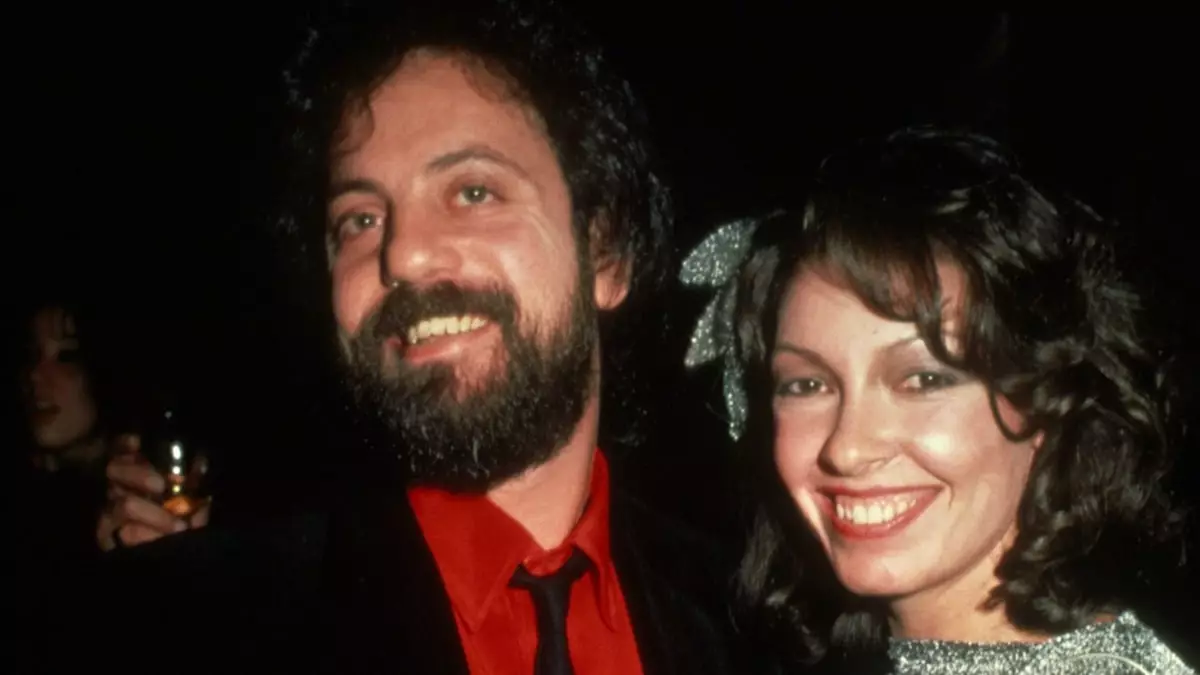In a captivating moment this week, Elizabeth Weber, the reclusive first wife of music icon Billy Joel, emerged from the shadows to grace the red carpet at the premiere of his HBO documentary, “And So It Goes,” held at New York’s Beacon Theatre. At the age of 82, she captivated audiences not merely with her impressive presence but also with her compelling reflections on their complex eight-year marriage. Accompanied by her son Sean Small, she stood poised amidst a plethora of cameras and flashes. “It’s great then, it’s great whenever I think about it, and it’s great now [to revisit],” she shared with People, a statement filled with nostalgia yet tinted with resilience, revealing a journey that transcends mere romantic ties.
Revisiting Love and Heartbreak
The documentary serves as an introspective canvas that portrays not just Billy Joel’s rise to fame but also the emotional undercurrents that shaped his creativity. Elizabeth’s recollections serve as vital touchstones in this story—she was not only a muse but also a major influence in crafting the poignant lyrics that have defined Joel’s legacy. The documentary’s first part delves into Joel’s formative years, his tumultuous romance with Elizabeth, and the heartbreak that propelled him into profound artistic expression. The fact that their affair ignited her separation from his bandmate, Jon Small, adds an element of dramatic complexity that’s hard to overlook.
The documentary also amplifies the darker chapters of Joel’s life. With raw honesty, he recounts his struggles, including two desperate suicide attempts linked to Elizabeth’s absence, which plunged him into despair. His candid self-reflection—”You can’t even do yourself in”—serves as a somber reminder of the fragile boundary between artistic brilliance and mental anguish. It’s almost as if the very notes of “Cold Spring Harbor” and the song “She’s Got a Way” echo his inner turmoil, revealing how love lost can fuel creativity.
The Power Couple: Navigating Fame and Hardship
Elizabeth’s role evolved significantly when they married in 1973. Transitioning from muse to manager, she strategically shaped Billy’s career with choices that would become pivotal in his journey. It was she who insisted he release “Just The Way You Are” as a single—a move that solidified his position in the music industry. The documentary captures the significance of her influence through humorous banter as she quipped about her share in the song’s publishing rights. “Do I get the publishing too?” she asked, displaying the mix of charm and business acumen that made their partnership extraordinary. The song’s success propelled Joel to new heights, leading him to label it the “turning point” of his career.
However, the road was fraught with challenges. As Billy’s popularity surged, so too did his struggles with addiction. Elizabeth made the heart-wrenching decision to step back and detach from both their marriage and managerial role in the early 1980s. This turning point coincided tragically with Billy’s severe motorcycle accident while under the influence, a moment where he himself thought he shouldn’t have survived. This period underscores that their intertwined lives were not just marked by artistic achievement but also dashed hopes and serious struggles.
A Comeback Fueled by Grace
Now, more than three decades since she retreated from the public eye, Elizabeth’s reappearance is purpose-driven and poignant. According to Elizabeth, her decision to contribute to the documentary was a synthesis of personal resonance and the desire to reshape her narrative. As she eloquently noted, “Susan approached me in a very personal way, and it resonated with me.” Her journey from being misunderstood in the public sphere to reclaiming her story is a theme echoed by her long-time friend Steve Cohen, who highlighted the rampant speculation surrounding her role in Billy’s life.
Stepping onto the red carpet arm-in-arm with her son Sean, Elizabeth’s elegant demeanor spoke volumes. It was a quiet yet powerful declaration, challenging the years of overshadowed assumptions that failed to recognize her contributions or experiences. Absent from the premiere was Billy, who is currently navigating health challenges, but the spirit of camaraderie between the former couple remains potent and palpable. Susan Lacy, the co-director, offered hope regarding Billy’s recovery, reinforcing the notion that despite the trials, there lies a resilient spirit that endures in both.
Elizabeth Weber’s re-emergence into the spotlight shines a light on the complexities of relationships intertwined with art and fame. In a world quick to categorize and judge, her narrative offers a refreshing perspective on love, resilience, and the transformative power of personal history. This documentary not only reinvigorates the past but also hints at a future where her voice is finally heard.

Leave a Reply